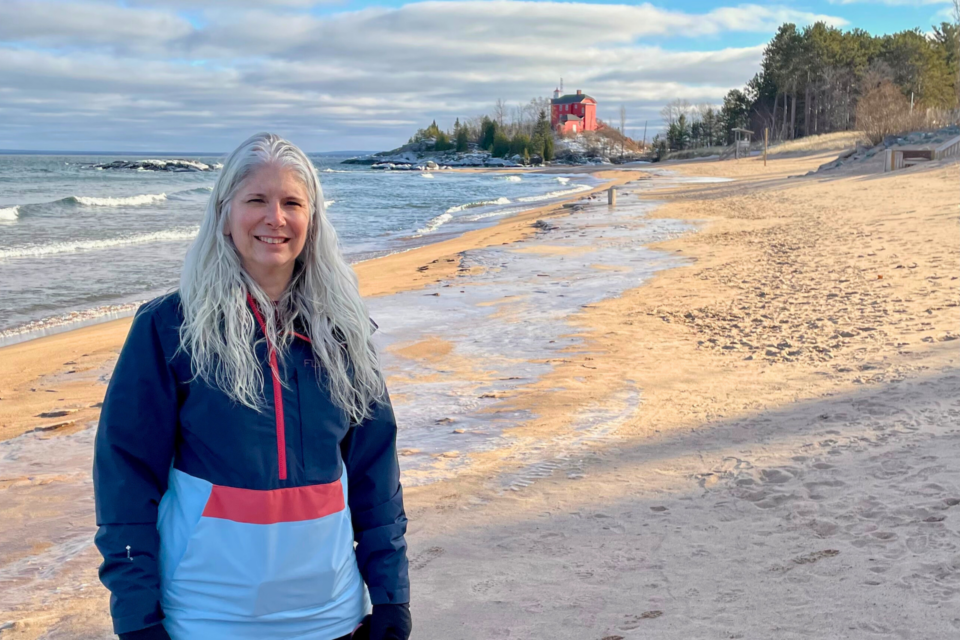In this op-ed, Rev. Kristi Hintz says voting yes to add “gender” and “ability” to Paragraph 4, Article 4 (Ballot #2) of the United Methodist Constitution is an opportunity to clarify our intention as a church to set a foundation of welcome, inclusion, and love for all.
REV. KRISTI HINTZ
Co-Chair, Board of Justice, Michigan Conference
Recently, I sat on the floor building a block tower with my granddaughter Isabella, age 2. The toy should be called knocking down blocks rather than building blocks to highlight the real appeal. With experience comes the knowledge that a triangle-on-the-bottom tower won’t stand long. One also learns that large rectangular blocks make the best foundation. The need for a solid foundation becomes obvious if building is the goal. It isn’t always.
As the church, we too have building up and knocking down work to do. The foundation blocks of clarity, love, inclusion, and welcome are spread before us. Building strong structures and systems with these blocks takes careful and constant focus. As we build, we must also work just as faithfully to knock down long-held barriers, even those newly under construction.
This year at the 2025 Michigan Annual Conference, some essential foundation work needs our attention. All eligible voting members will have the opportunity to ratify the amendment to Paragraph 4, Article 4 of the United Methodist Constitution, which now reads as follows, and includes the 2020/2024 General Conference historic vote to add the words “gender” and “ability”:
Inclusiveness of the Church – The United Methodist Church is a part of the church universal, which is one Body in Christ. The United Methodist Church acknowledges that all persons are of sacred worth. All persons without regard to race, gender, ability, color, national origin, status or economic condition, shall be eligible to attend its worship services, participate in its programs, receive the sacraments, upon baptism be admitted as baptized members, and upon taking vows declaring the Christian faith, become professing members in any local church in the connection. In The United Methodist Church, no conference or other organizational unit of the Church shall be structured so as to exclude any member or any constituent body of the Church because of race, color, national origin, status or economic condition.
In her article Paragraph 4, Article 4: Changing the Game, Rev. Leigh Goodrich, Senior Director of Education and Leadership for the General Commission on the Status and Role of Women (GCSRW), explains that this amendment “ensures a pastor may not deny a person membership in the church because they have a disability, are female or male, married or single, young or old.” Perhaps you think this seems obvious and should be understood as part of the strong foundation we already stand on. If that were so, this amendment would not be necessary. We know that is necessary because if we listen, we’ll hear the stories of those left out. We’ll hear the pain of those who have not been seen, those who have been defined outside the bounds of “everyone.”
Friends, let us take seriously our commitment to be clear about who we are and what we are building. Let us take this opportunity to clarify our intention to set a foundation of welcome, inclusion, and love for all. Let what we build reflect who we are, and let who we are be dictated by the gospel.
In Acts 10, Peter preaches the gospel in this way:
Peter said, “I really am learning that God doesn’t show partiality to one group of people over another. Rather, in every nation, whoever worships him and does what is right is acceptable to him. This is the message of peace he sent to the Israelites by proclaiming the good news through Jesus Christ: He is Lord of all! . . . These people have received the Holy Spirit just as we have. Surely no one can stop them from being baptized with water, can they?” He directed that they be baptized in the name of Jesus Christ” (vv. 34-36, 47-48, CEB).
Peter boldly speaks the radical truth: Everyone is included in God’s kingdom. This amendment helps us to articulate that truth further. Goodrich writes, “This amendment throws wide the doors of our churches and imagines God’s enormous embrace of creation.” Together, let’s do the work that is before us: building up and knocking down. Let us build and shape the church in our time and place. Let’s do our best job because my granddaughter Isabella — baptized, welcomed, included, and loved — will inherit it one day, along with the rest of her generation. Vote yes on Paragraph 4, Article 4.
Last Updated on April 29, 2025

